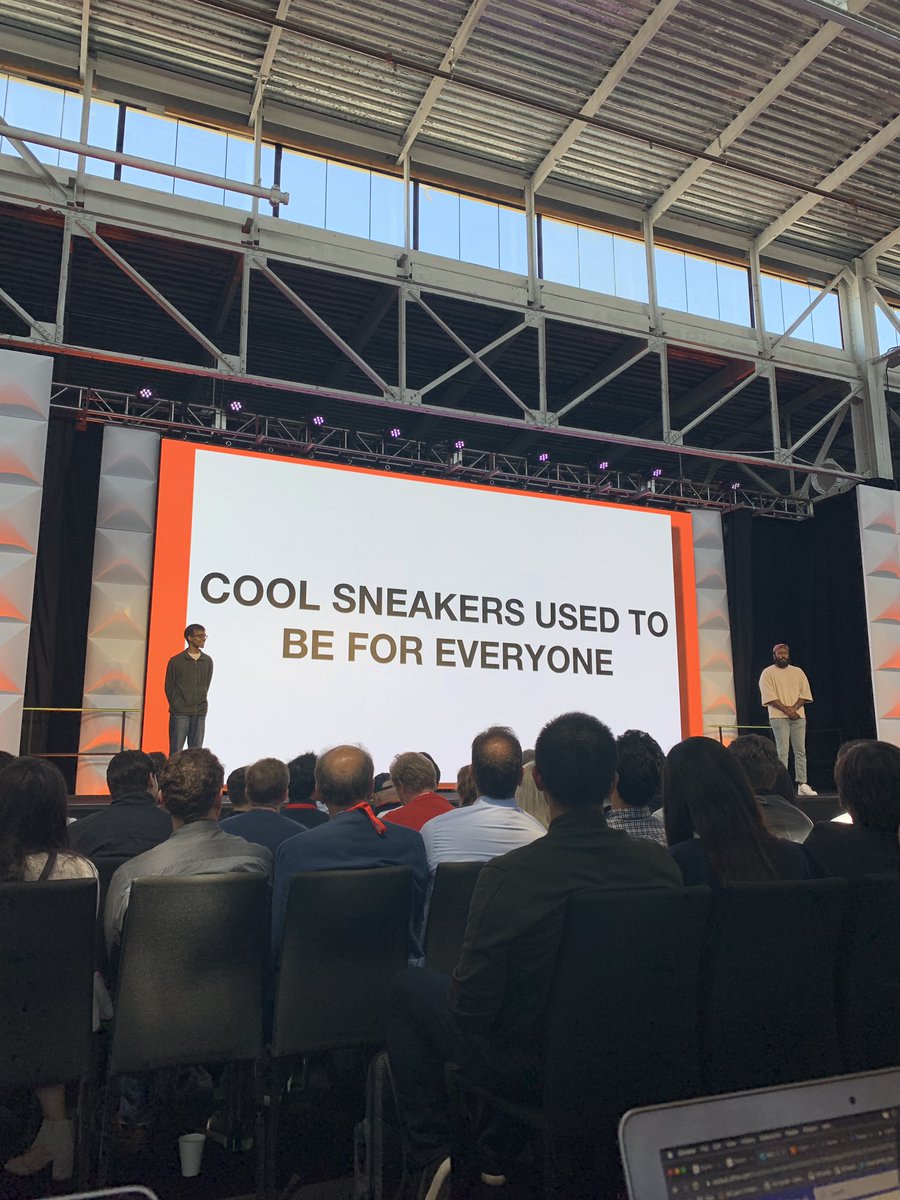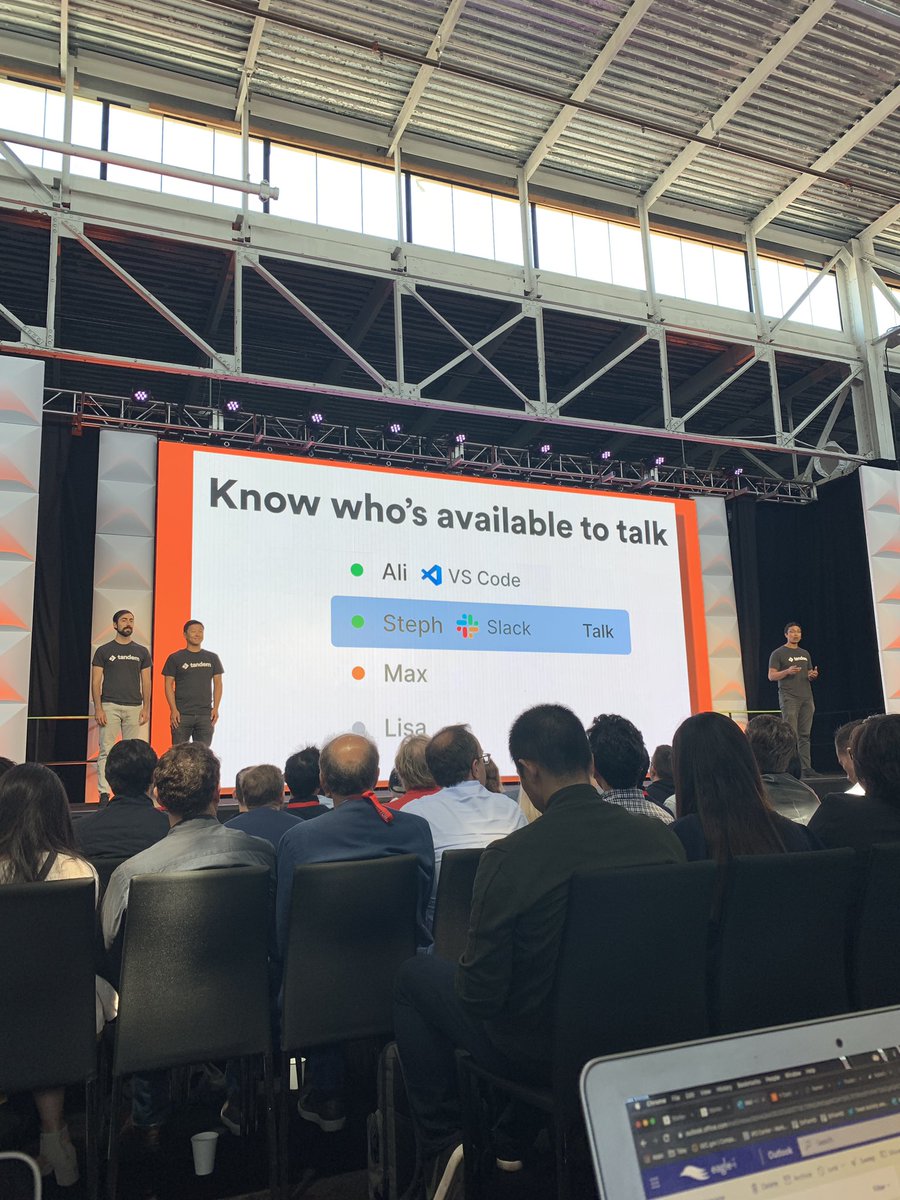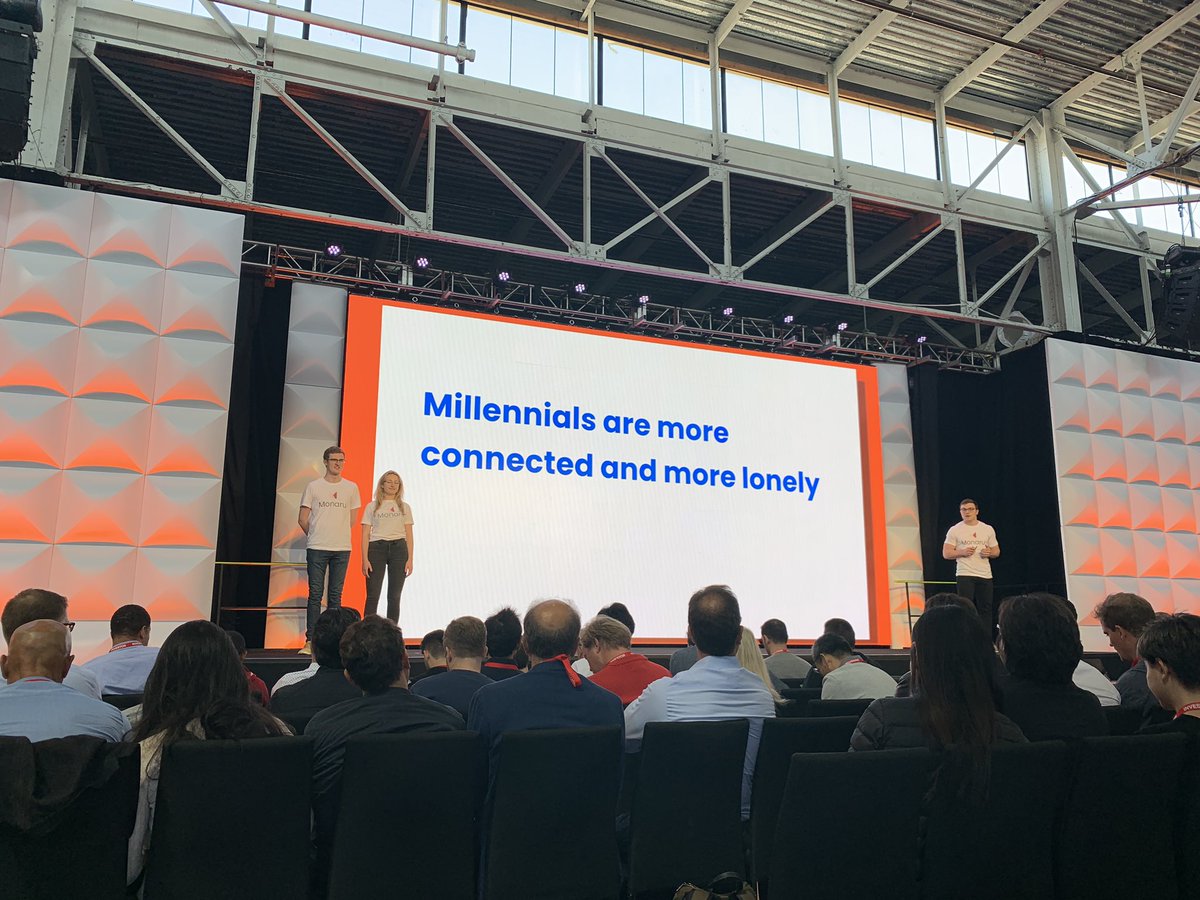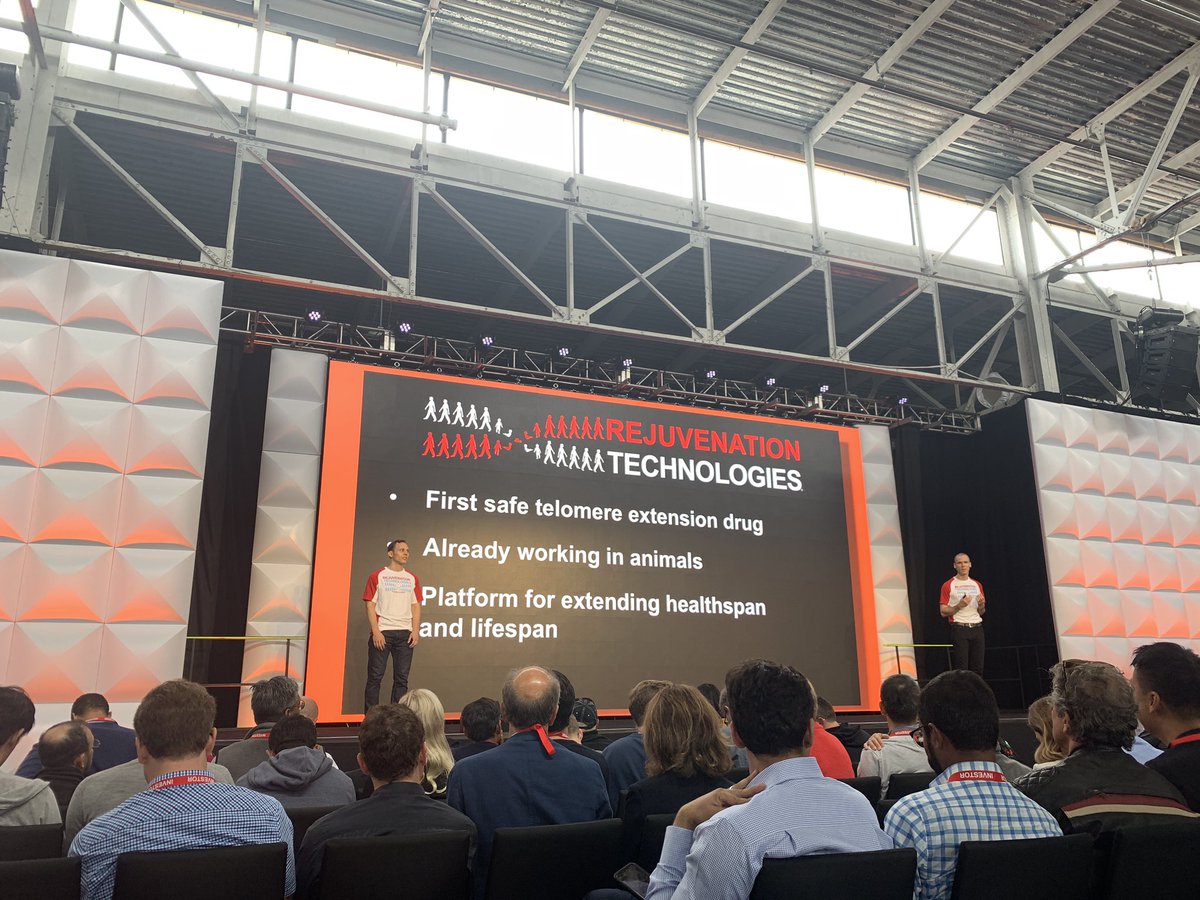Kick off with Asher Bio from two ex-Pfizer directors who were tired of pharma’s pace of work. They’re tackling precision immunotherapy cancer treatments and have snagged 4 of their previous team members 

Next startup is from 4 Stanford grads: Talar, which is working on "last meter delivery." They can stock + replenish your fridge for you. It will not be a feature of DoorDash, Postmates, etc...."we will build the first delivery network built on trust."
Next one, spotLESS Materials, developed slippery coating that keep surfaces clean. They cites barnacle removal as a a $2.7B opportunity, and are piloting with the US Navy.
First trucking startup of the day! Trella days it’s “Convoy for Egypt.” They’ve completed 7,000 shipping loads in the past 4 months, $17B industry. CEO + COO have helped Uber expand in the Middle East. 

Shiru says it is using machine learning to create food proteins to replace dairy and eggs. Jasmine Hume, CEO, cites Impossible Foods + Beyond Meat as market opportunity. They're going to license the IP of the protein ingredients to other companies to make $$
First weed startup o’ the morning. Canix wants to help cannabis farmers with compliance. Think tags, tracking, and scanners. 

Embrace, which monitors apps, pitches to investors: "All your portfolio companies have mobile apps." They all have bugs. "We'll come and fix them."
Microverse says it’s the Lambda School for emerging countries. It claims it makes $6,000 per software engineer student it teaches, and expects to get to $100M in revenue in less than three years. 

I wonder how many @ycombinator startups are taught to cite previous batches during their pitches.
Globe says it’s Airbnb for the hour; for professionals to unlock space hourly for meetings or naps. Quite a slide: “Globe will be bigger than Airbnb.” 

Lucid is a startup that created drones to clean building ($4.6B market, they claim. This reminds me of this @thewendylee classic: sfchronicle.com/business/artic…
TrustedFor wants to change hiring by building “Linkedin 2.0.” It’s already pulling from the YC network of 5,000 founders — “if you guys want to take down LinkedIn, come talk to us.” 

Cloosiv: Mobile ordering option for small independent coffee shops to keep up against Starbucks☕️☕️☕️ The founder explains this is similar to Instacart helping small grocers battle Amazon. 

The Custom Movement claims in ten years they will have replaced Nike as the world’s largest sneaker marketplace. 





Tandem compares itself to Discord, except instead of seeing what game someone is playing you can see what your remote team is doing in real time. Emphasis that all teams are remote in some way. 

Instead of going vegan or buying a Tesla, Wren suggests you also subscribe to its $20/month model that plants tree based on your carbon footprint. 503 paying subscriptions so far, and it's looking to become an employee benefit.
LineLeap says it is the OpenTable for night life. It sent out a push notification in Ann Arbor and 150 drinks were pre-purchased. From it’s website, it looks like it’s tackling college campuses first: 

Monaru wants to be personal assistant for personal life. You tell them who is important to you, and they’ll tailor recommendations to you 

Wave, which matches users that have fetishes with eachother, launched three days ago and has 751 users. $1.2B TAM in US alone. 

• • •
Missing some Tweet in this thread? You can try to
force a refresh











